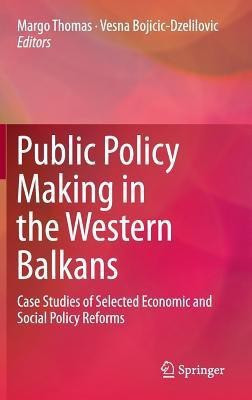Public Policy Making in the Western Balkans(English, Hardcover, unknown)
Quick Overview
Product Price Comparison
Developing and 'transition' economies face myriad challenges in their attempts to achieve and maintain political stability and foster the economic growth essential for national security, the social well-being of current citizens and sustainable environments for future generations. Governments in the Western Balkans have striven to achieve all of the above, and this volume assesses the nature of their experiences as well as the level of their success in doing so. Featuring detailed case studies of public policy reforms in the region as well as comparative analysis on a range of indicators, the book analyzes the role of key players in setting the political agenda as well as implementing policy reforms. It also distils the lessons that can be learned from the Western Balkan experience, recommending strategies for enhancing the policy making process. In addition, it examines the developmental role played by the full spectrum of policy actors, including the private sector, NGOs, specialinterest groupings, international financial institutions, donor nations and the EU. Each case study has been prepared by academics with deep knowledge and experience of the western Balkans and addresses a core set of questions: identifying the policy issue and its broader context, defining the roles of specific individuals in formulating policy and reform and assessing the influence of networks and coalitions in the policy making process. With so little detailed literature on public policy making in a group of nations strategically positioned between Europe, Russia and the near East, the detailed insights provided by this volume will be widely welcomed. Our book provides case studies of specific public policy reform episodes in selected Western Balkan post-conflict and transition countries. The focus of these case studies extends beyond the technical aspects and entails substantive examination of the policy actors, constituencies and politics that ultimately shape the policy that emerges from the policy making process. This analysis draws lessons for strengthening the quality of policies, the transparency, consistency, and governance of the policy making process and ultimately for contributing to economic and social development of the region.


